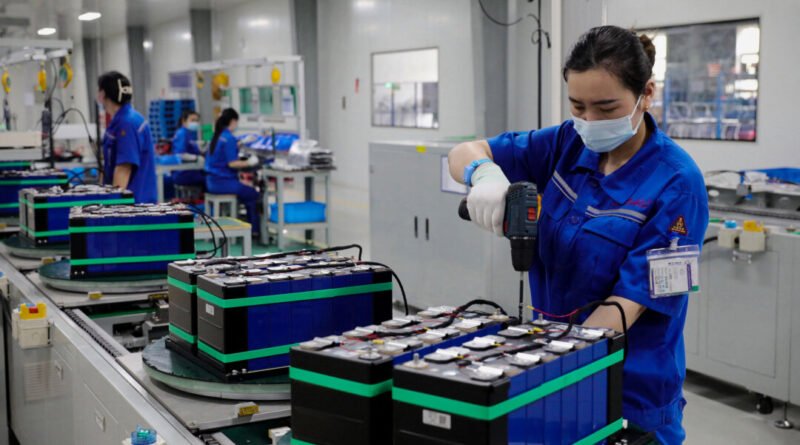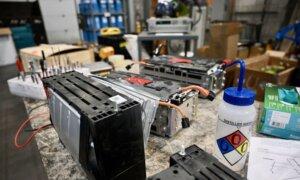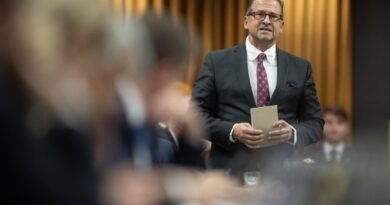Lithium Company Urges Halt in Battery Exports to Support Australia’s Recycling Efforts
The company prioritizes the sustainability of the industry over short-term profit.
An Australian lithium technology company is advocating for a ban on exporting used batteries to bolster the local recycling sector.
Addressing a parliamentary inquiry on Aug. 8, Lithium Australia CEO Simon Linge highlighted the industry’s vital role in the shift to electric vehicles (EVs) as their popularity grows.
Linge shared, “The Australian Electric Vehicle Council reports that over 98,000 EVs were sold in Australia last year, with over 180,000 now on the roads, representing both a significant opportunity and a potential risk that needs careful management.”
Due to the value and potential hazards of materials in EV batteries, Linge emphasized the advantages a domestic recycling industry would bring to both the economy and the environment.
However, the CEO noted the reluctance of local businesses to engage in lithium battery recycling in Australia.
He explained, “Numerous companies, even prominent brands that promote their sustainability efforts, choose to export batteries to countries like India due to their lower environmental and labor standards, which allows for cost-effective processing.”
“With free battery exports, Australia will not have a local recycling industry while benefiting from cheaper overseas options.”
To address this, Linge suggested prohibiting local companies from exporting used lithium batteries.
He suggested, “We believe that key factors to support a robust domestic battery recycling industry are banning battery exports, prohibiting batteries from ending up in landfills (as some states have already done), and standardizing regulations and standards nationwide concerning labeling, handling, storage, and transportation.”
“It’s essential to recognize that recycling any product, particularly something as intricate and potentially hazardous as a battery, involves costs. However, the short and long-term advantages are substantial.”
Lithium Australia recycled more than 1.5 million kilograms of batteries in the last financial year and plans to process the equivalent of 2,779 EV batteries in 2024, according to the CEO.
Calls for More Regulatory Control
Furthermore, Linge highlighted the necessity of establishing more regulatory oversight across the battery value chain in Australia.
He noted the varying quality of batteries and the necessity to regulate their standards, especially since the majority of batteries are currently manufactured in China.
Commenting on the differences in how states and territories manage the battery value chain, Linge remarked, “Each state has distinct regulations regarding end-of-life batteries, transportation limits, and storage requirements, creating uncertainty even in basic tasks like pre- and post-life battery storage.”
Linge proposed looking to European countries for guidance on regulation and implementing battery passports in Australia.
These comments follow the Association for the Battery Recycling Industry’s acknowledgment that insurance costs pose a significant challenge for the sector.






